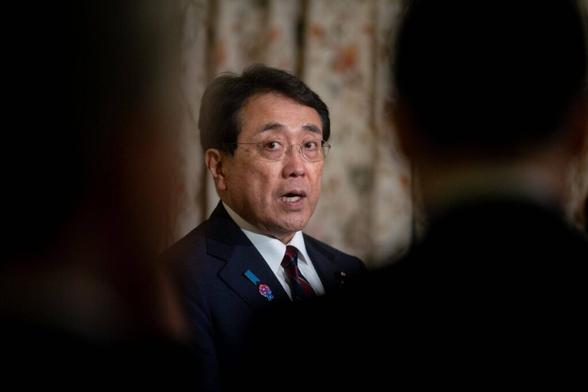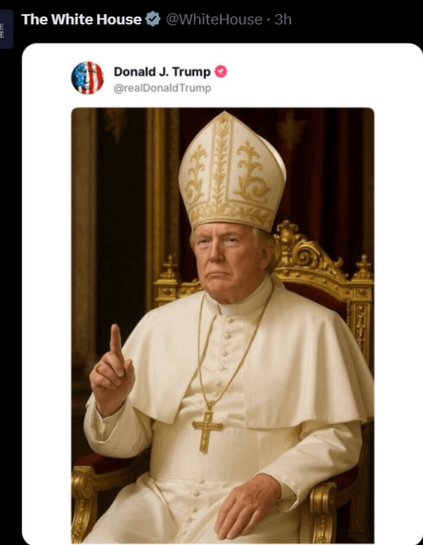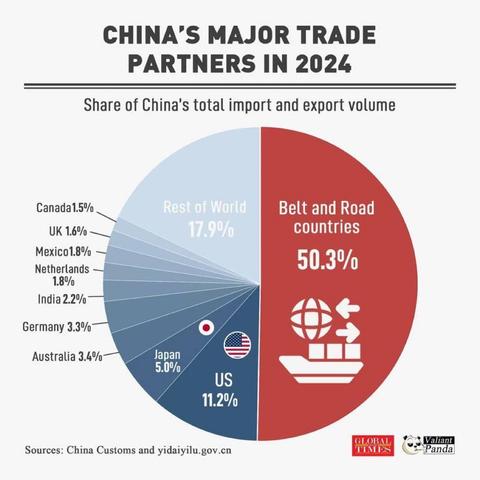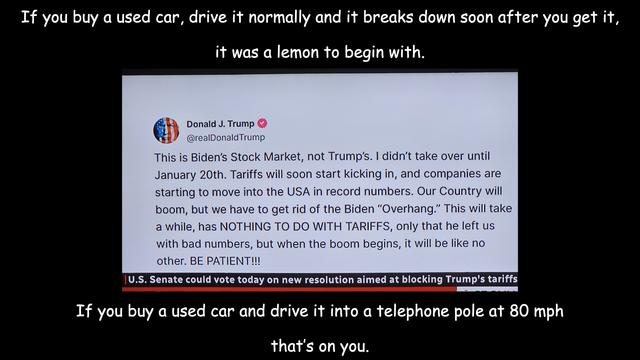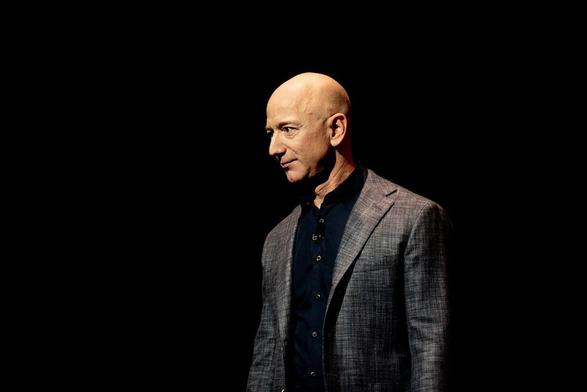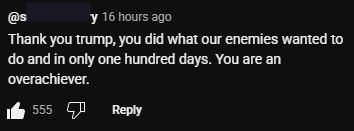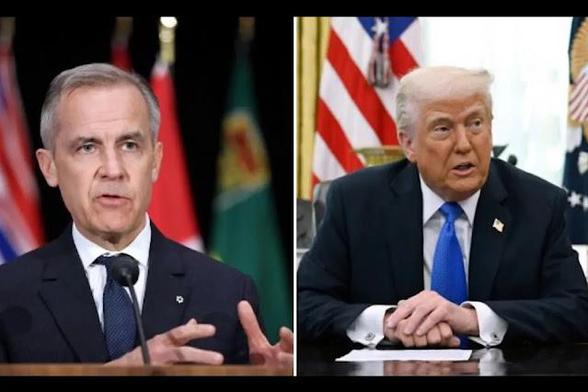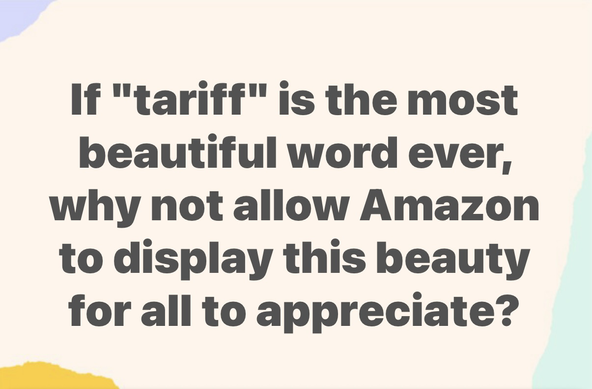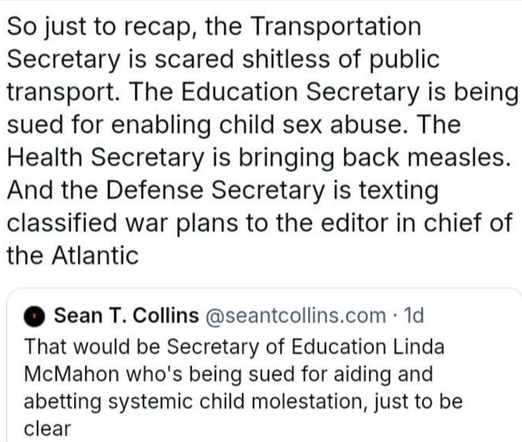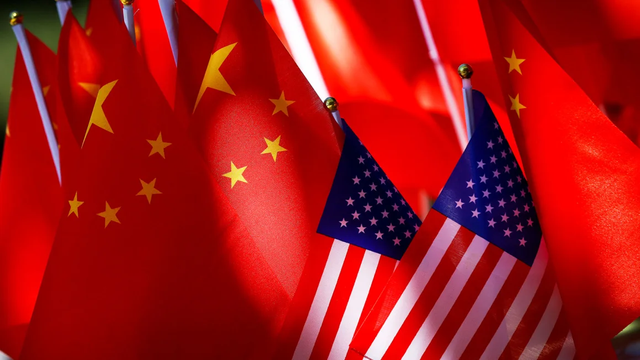Tokyo's envoy for U.S. tariff talks said Saturday after a second round of negotiations that Japan was insisting Washington review all the levies as a precondition to a trade deal. https://www.japantimes.co.jp/business/2025/05/03/tariff-envoy-tokyo-insist/?utm_medium=Social&utm_source=mastodon #business #ryoseiakazawa #us #usjapanrelations #donaldtrump #tariffs #tradewar #trade #shigeruishiba
#tradewar
https://www.alojapan.com/1264418/japans-tariff-envoy-says-tokyo-insisting-on-u-s-rethink/ Japan’s tariff envoy says Tokyo insisting on U.S. rethink #DonaldTrump #RyoseiAkazawa #ShigeruIshiba #tariffs #Tokyo #TokyoTopics #trade #TradeWar #u.s. #U.S.JapanRelations #東京 #東京都 AFP-JIJI – Tokyo’s envoy for U.S. tariff talks said Saturday after a second round of negotiations that Japan was insisting Washington review all the levies as a precondition to a trade deal. Japan, a key U.S. ally and its biggest investor, is subject to the…
Marco Rubio lectures Germany on democracy while praising an AfD under surveillance for extremism. Meanwhile, U.S. tariffs bounce off China like nerf darts — a tough talker abroad, a paper tiger at home. If your foreign policy is cosplay and your trade war a comedy, maybe sit out the next lecture on tyranny.
#Rubio #AfD #Germany #USForeignPolicy #TradeWar #China #Authoritarianism #Verfassungsschutz #RightWingExtremism #PoliticalTheater #PaperTiger
Ahh Saturday morning, I wonder what the president of the United States and the white house have been up to ….. FFS - do you remember when it was real life grown up country ? #politics #uspolitics #bbc #news #conservatives #tariffs #tradewar #trade #trump #DonaldTrump #gop #republicans #MAGA #uspol #trumptariffs
"A far better strategy is to exert maximum pressure on the US economy, which will then reveal its fundamental weaknesses, scare Trump’s billionaire friends, and ultimately force him to blink (again). This can be achieved by rejecting any negotiation and pursuing proportional acts of retaliation. If enough countries adopt such an approach, America will find itself isolated. Since the US represents only 15% of world trade, those representing the remaining 85% have everything to gain by coordinating their response.
(...)
By imposing reciprocal tariffs on US goods, countries can harm the US export sector, thereby creating a domestic lobby for ending the aggression. In the absence of such a countervailing force, the lobby for import substitution (industries producing goods that the country currently imports) in the US will have Trump’s ear.
A version of this political-economy argument featured prominently in successive trade negotiations throughout the postwar period. In negotiating tariff reductions, countries used a reciprocity argument: We will reduce our own tariffs if others around the negotiating table do the same. In doing so, they created a domestic lobby of exporters favoring tariff reductions, and helped to overcome opposition from the import-substitution sector. This approach was highly successful in reducing tariffs worldwide, and there is no reason why it shouldn’t be equally successful today.
(...)
To solve this collective-action problem, we need political leadership. China has already shown the way with its reciprocal tariffs on US goods. If the European Union were to join it, there would be two leaders big enough to harm the US significantly, and others would have an incentive to join the coalition."
#USA #Trump #Tariffs #TradeWar #Protectionism #PoliticalEconomy #China #EU
Boeing buys both technology and materials from China which are used in civilian and military sectors. China has monopolies in heavy rare magnets and the rare earth metals required to build them.
Since Trump's tariff war, China has closed export markets for all these dual-use technologies and Boeing won't be able fulfill multi-billion dollar contracts.
https://kdwalmsley.substack.com/china-is-killing-boeing-part-ii-as
#China #tradewar #trump
America was already kind of a ghost town, just with boatloads of capital and economic goods and services constantly flowing by virtue of the debt economy and America being so internationally connected in trade. But now, without the international trade? Prices look to be almost (or even more than) doubling, and it's about to just be all the hollowness of a ghost town without all the economic activity.
#TradeWar continues until US drops unilateral #tariffs and act reasonably toward China
#economy https://finance.yahoo.com/news/live/trump-tariffs-live-updates-china-says-door-is-open-to-trade-talks-with-the-us-191201877.html
Jeff Bezos Plans to Sell $4.75 Billion of Amazon Shares as Company Navigates Tariffs and Taxes
#Amazon #JeffBezos #AMZN #StockMarket #StockSale #Tariffs #TradeWar #Ecommerce #BigTech #USEconomy #Politics #Trump #AWS
Farm to Taber draws a direct line of succession from the plantation #oligarchy of the #Confederacy to #usa #oligarchs of today in six short minutes.
With my masters degree in #americanStudies I could not do a better job connecting #class #agriculture #psychology and #economics to understand the impact of #TradeWar on the #civilWar
Overachiever Trump? Yes. Helping bringing the US down on its knees within 100 days. #Polirics #USAdversaries #USDefeat #HybridWar #TrumpTariffs #EmptyPorts #China #TradeWar
@carnage4life
#TEMU is making a mistake.
It would have more of an impact if they SHOWED the items and then said, "No. You can not have it." #TradeWar #China
ICYMI: Trump Announces Canadian PM Carney’s White House Visit to Discuss Trade https://www.rainsmediaradio.com/2025/05/trump-announces-canadian-pm-carneys.html?utm_source=dlvr.it&utm_medium=mastodon Follow, Like & Share #Trump #Canada #TradeWar #MarkCarney #USTariffs
Going to plan then … never read the bible but might just give revelations a quick scan #politics #uspolitics #bbc #news #conservatives #tariffs #tradewar #trade #trump #DonaldTrump #gop #republicans #MAGA #uspol #trumptariffs
🇨🇳 CHINA | 🇺🇸 US
🔴 Beijing Signals Openness to Trade Talks with U.S.
🔸 China says it’s reviewing U.S. proposals to start trade talks.
🔸 Marks rare shift in tone as Beijing demands U.S. show “sincerity” and cancel unilateral hikes.
🔸 Rubio: “Tariffs work. China wants to negotiate.”
#China #US #TradeWar #Tariffs #Trump #Rubio #Beijing #Economy
https://www.alojapan.com/1263372/japanese-yen-struggles-to-capitalize-on-modesty-bounce-against-usd-us-nfp-report-awaited/ Japanese Yen struggles to capitalize on modesty bounce against USD; US NFP report awaited #boj #Japan #JapanNews #Japanese #JapaneseNews #news #NFP #SEO #TradeWar #usdjpy The Japanese Yen reverses an Asian session dip to a fresh multi-week low against the USD.The BoJ’s dovish outlook and a positive risk tone might cap the upside for the safe-haven JPY.Traders might also refrain from placing aggressive bets ahead of the crucial US NFP report. …
